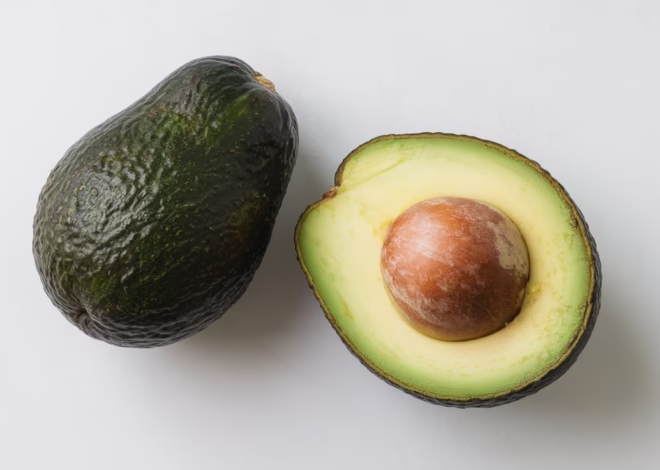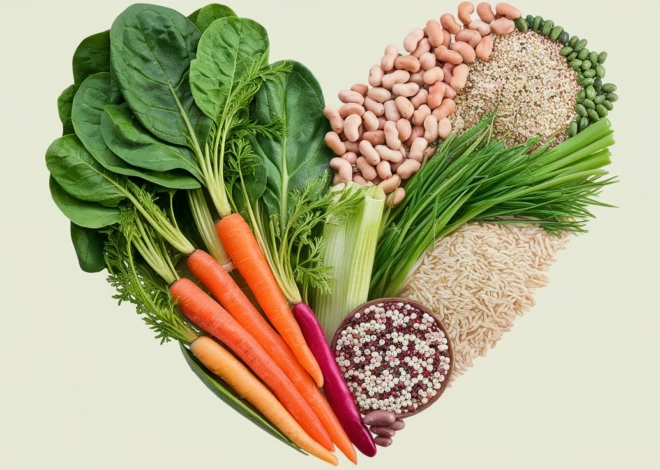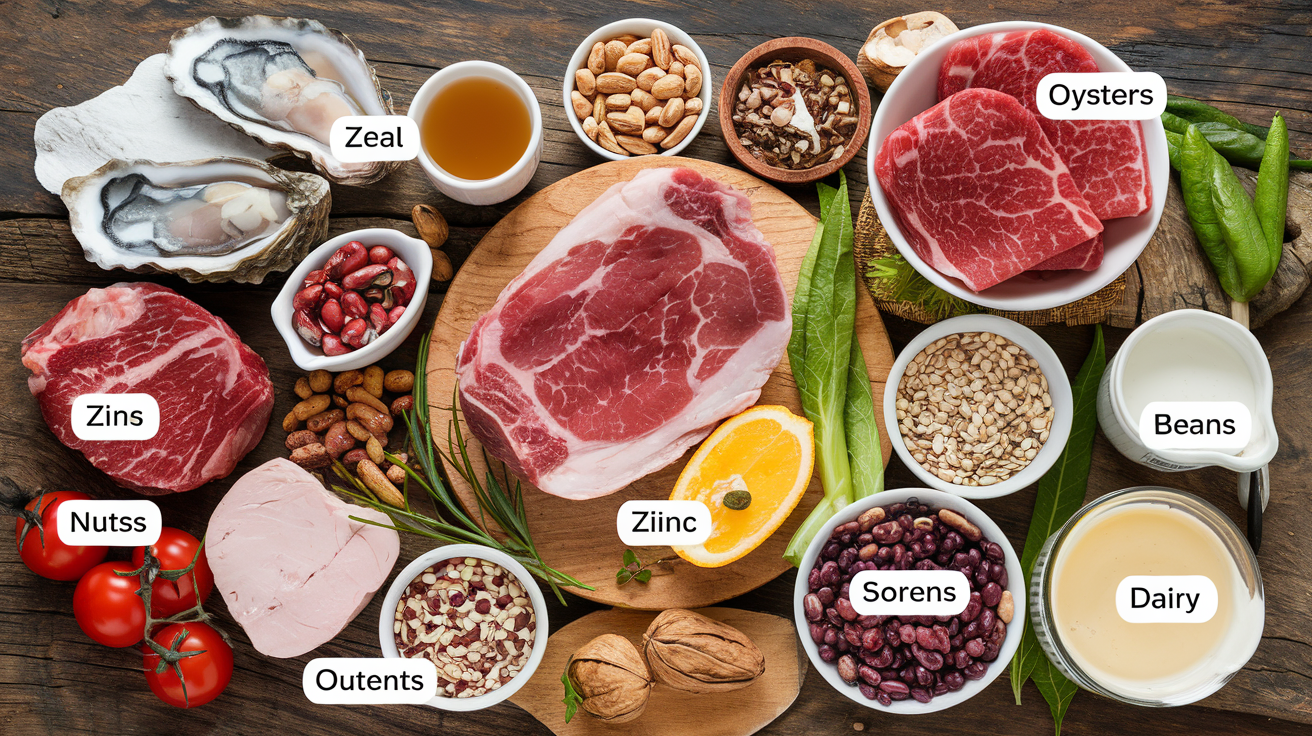
7 Health Benefits of Zinc Supplements: Why Your Body Will Thank You
When it comes to essential minerals, zinc often gets overshadowed by its flashier siblings like calcium and iron. But zinc is the quiet hero your body needs—working behind the scenes to keep everything running smoothly. From boosting your immune system to improving your skin health, zinc supplements are gaining popularity for all the right reasons. Let’s dive into the world of zinc and discover why this mighty mineral deserves a spot in your daily routine.
What Is Zinc, and Why Do We Need It?
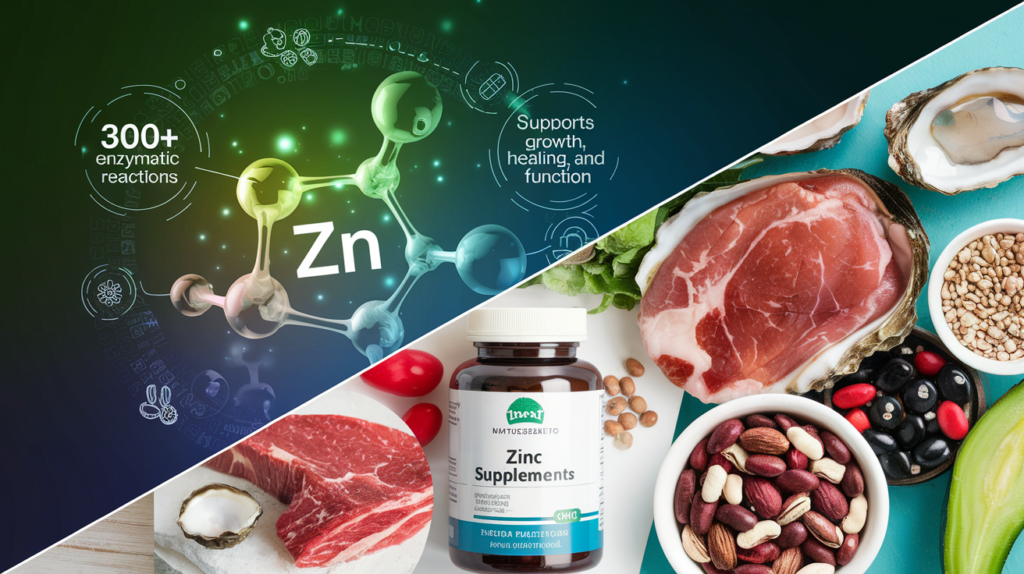
Zinc is an essential trace mineral that plays a role in over 300 enzymatic reactions in the body. That’s right—300! It helps your body grow, heal, and function optimally. While zinc can be found in a variety of foods like shellfish, red meat, beans, and nuts, many people don’t get enough from their diet. That’s where supplements come in handy.
So, why does your body need zinc? Here’s a quick list of its MVP functions:
- Supports immunity: Zinc is like your immune system’s personal trainer. It helps produce infection-fighting white blood cells and shortens the duration of colds.
- Wound healing: Got a cut or scrape? Zinc speeds up the healing process by promoting cell repair and regeneration.
- Growth and development: From infancy to adulthood, zinc helps the body grow by supporting DNA synthesis and cell division.
- Taste and smell: Zinc is essential for maintaining your senses of taste and smell—two things we take for granted until they’re gone.
- Hormonal health: For both men and women, zinc plays a key role in reproductive health and hormone balance.
Read Also: Health Benefits of Magnesium Supplements
Health Benefits of Zinc Supplements
If you’re not convinced yet, let’s break down some specific health benefits of zinc supplements:
1. Boosts Immunity and Fights Colds
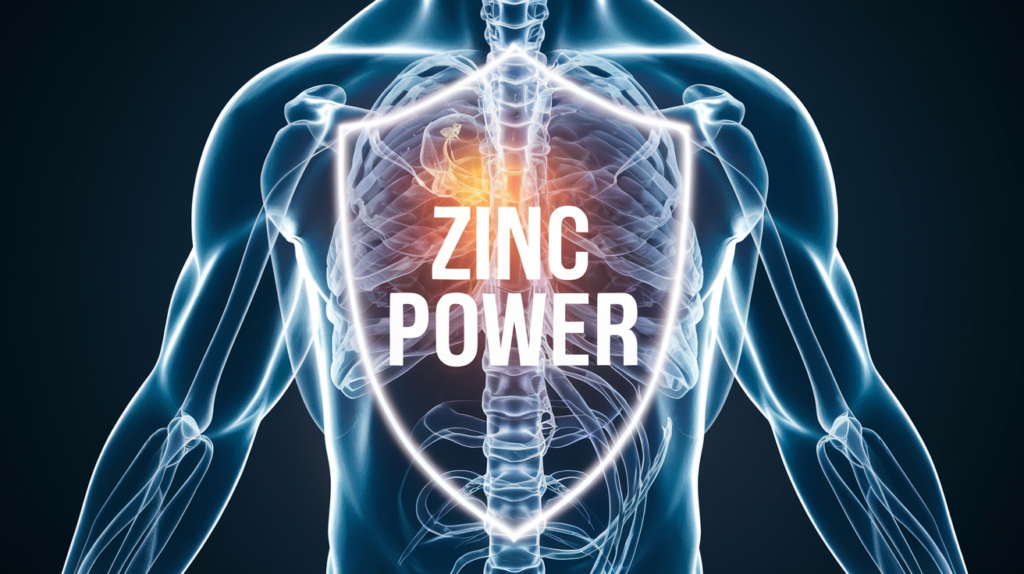
Ever heard the phrase, “Take zinc at the first sign of a cold”? That’s not just an old wives’ tale! Zinc is a powerhouse for your immune system. Studies have shown that zinc supplements can reduce the severity and duration of colds by preventing viruses from multiplying. So, the next time you feel the sniffles coming on, reach for some zinc lozenges.
2. Improves Skin Health
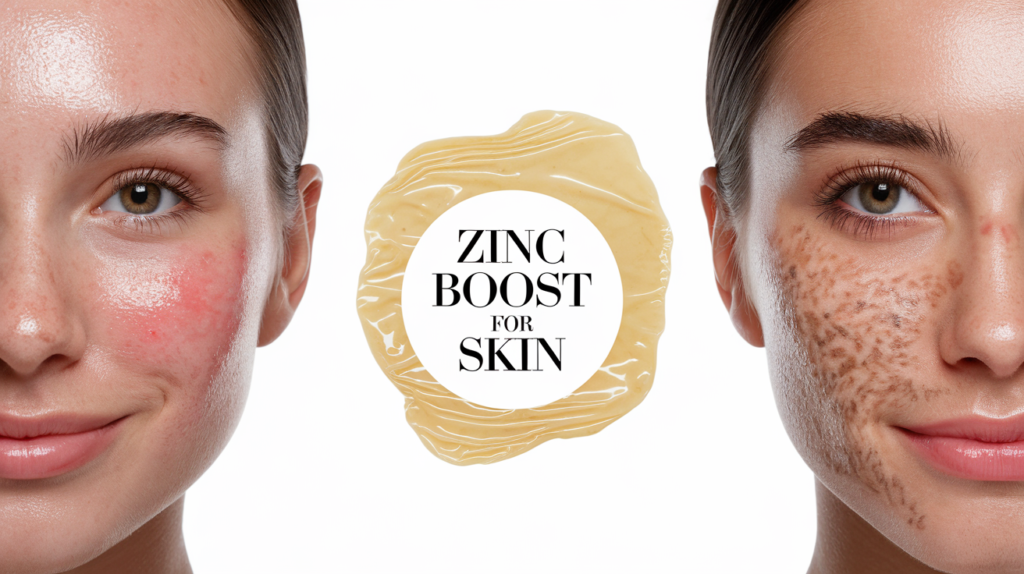
Struggling with acne or eczema? Zinc might be your new best friend. Its anti-inflammatory properties can help reduce redness and swelling, while its ability to regulate oil production keeps your skin in check. Many skincare products already include zinc, but taking it as a supplement can give your skin an extra boost.
3. Supports Fertility
Zinc plays a critical role in reproductive health for both men and women. In men, it supports testosterone production and improves sperm quality. In women, zinc helps regulate hormones and supports egg health. Whether you’re planning a family or just keeping your hormones in balance, zinc is a valuable ally.
4. Promotes Better Brain Function

Your brain loves zinc! It plays a role in neurotransmitter function, which means it helps your brain communicate better with the rest of your body. Adequate zinc levels have been linked to improved memory, attention, and overall cognitive function.
5. Keeps Your Eyes Healthy
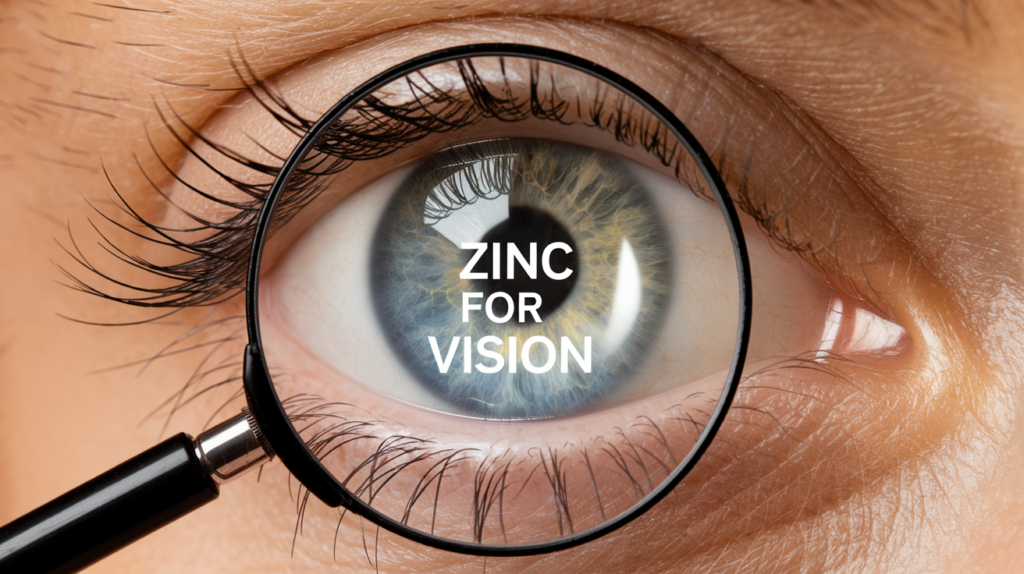
Zinc is like a bodyguard for your eyes. It helps transport vitamin A from your liver to your retina, keeping your vision sharp. It’s also been shown to reduce the risk of age-related macular degeneration, making it a great supplement for long-term eye health.
6. Strengthens Hair and Nails
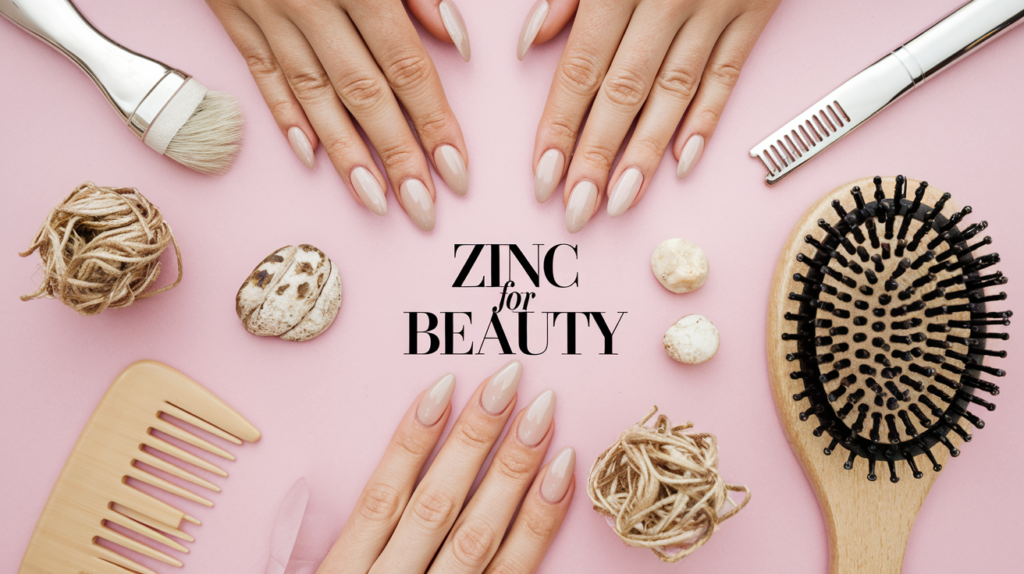
If your hair and nails are looking a little lackluster, zinc might be the missing piece. This mineral helps repair damaged tissues, promotes growth, and keeps your locks and nails strong.
7. Helps with Muscle Growth and Recovery
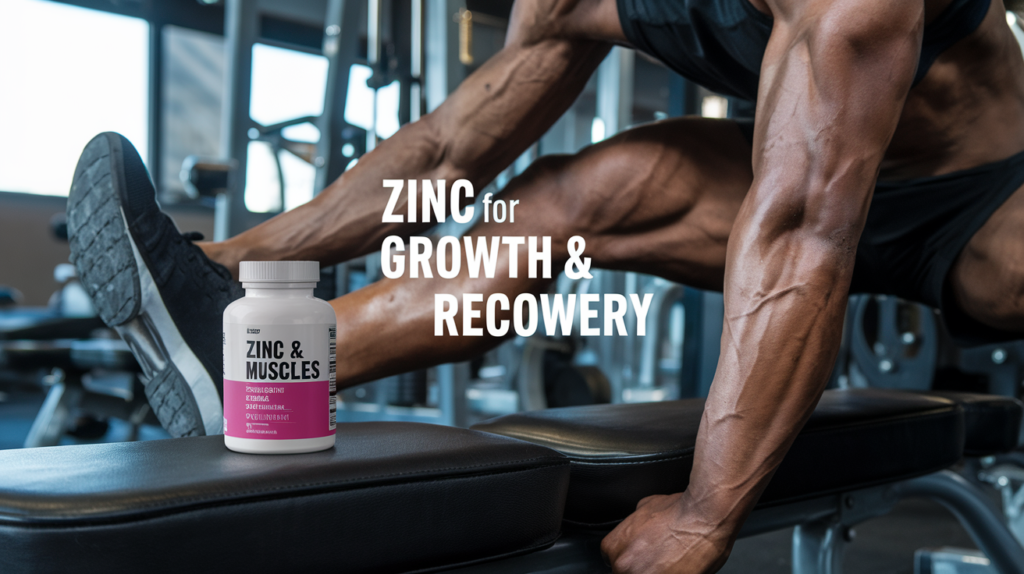
Fitness enthusiasts, take note: zinc supports muscle growth and repair by aiding protein synthesis and reducing inflammation after exercise. It also helps regulate testosterone, giving you that extra edge in your workouts.
How Much Zinc Do You Need?
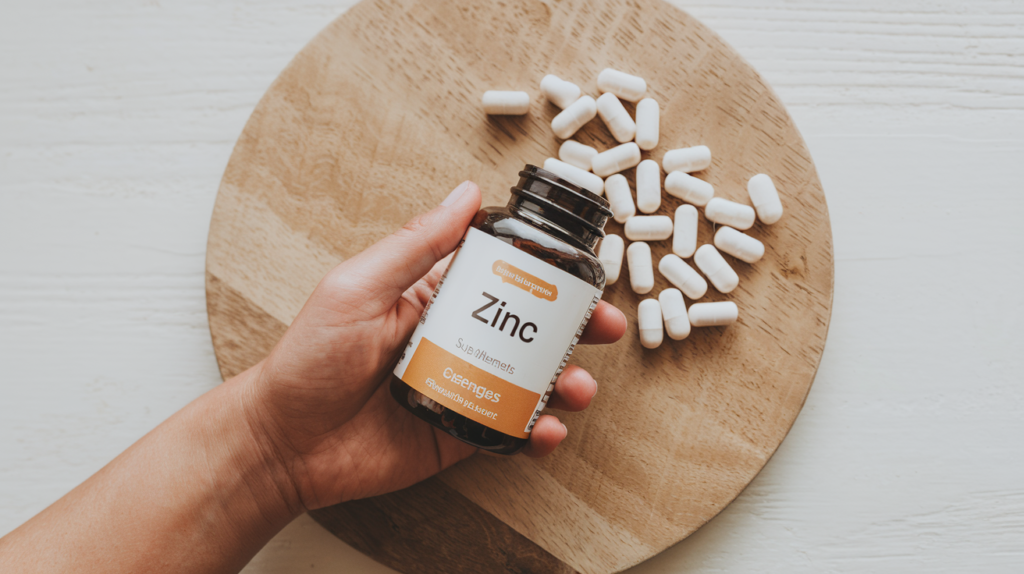
The recommended daily intake (RDI) of zinc depends on your age and gender:
- Men: 11 mg/day
- Women: 8 mg/day
- Pregnant women: 11 mg/day
- Breastfeeding women: 12 mg/day
While zinc is generally safe, taking too much can lead to nausea, headaches, or an upset stomach. Experts recommend staying under 40 mg per day, unless advised otherwise by a healthcare professional.
Food Sources vs. Supplements
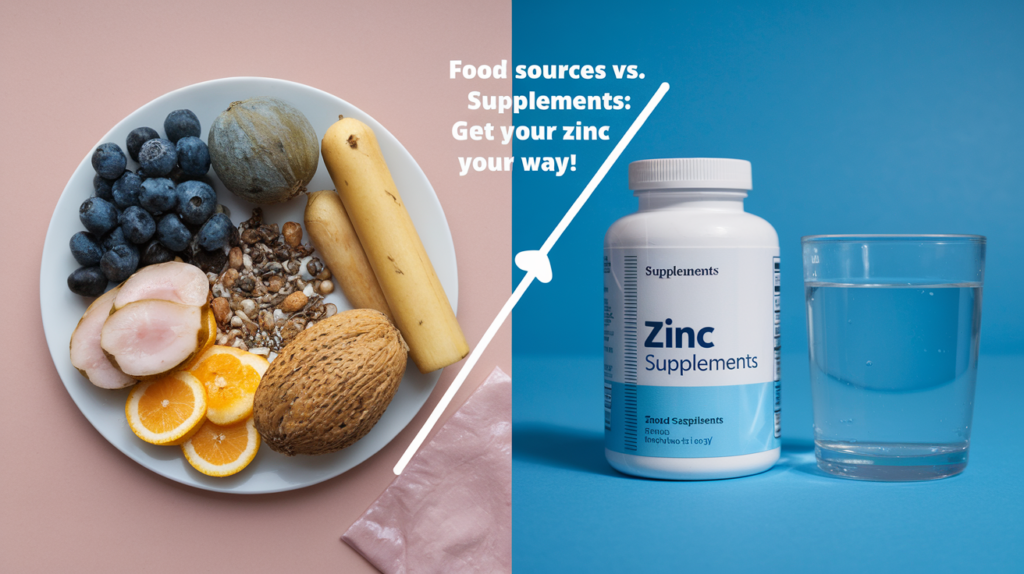
While it’s always best to get your nutrients from food, it’s not always easy to hit your zinc quota through diet alone. Foods rich in zinc include:
- Oysters (a zinc powerhouse!)
- Red meat
- Poultry
- Beans and lentils
- Seeds and nuts
- Dairy products
- Zinc supplements are an excellent option if you’re not getting enough from your meals. They come in various forms, including tablets, capsules, and lozenges. Just make sure to choose a reputable brand and follow the dosage instructions.
Any Side Effects?
Like anything in life, moderation is key. While zinc is safe for most people, taking too much can lead to side effects like nausea, diarrhea, or even a weakened immune system. Always talk to your doctor before starting any new supplement.
Final Thoughts: Small Mineral, Big Impact
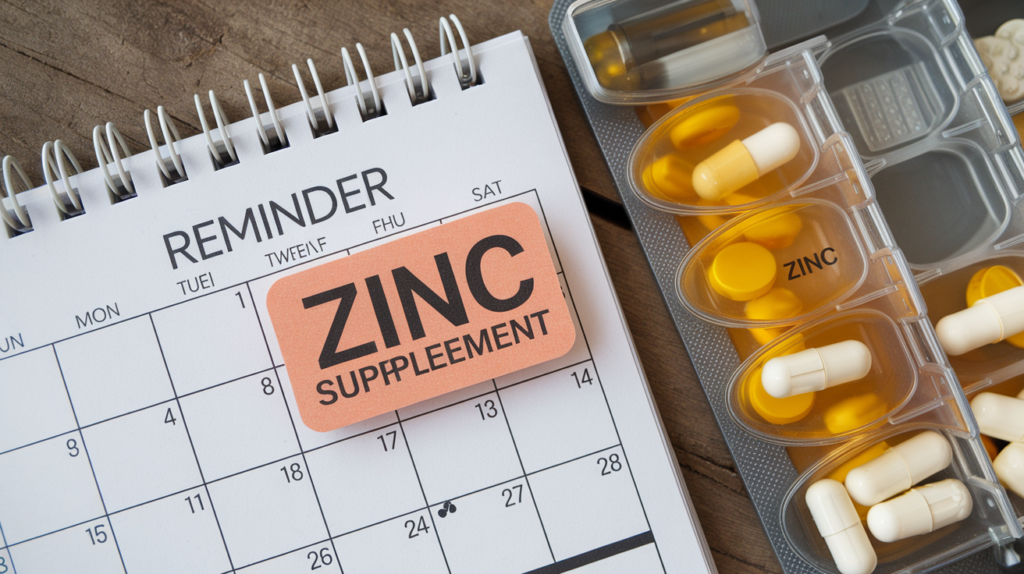
Zinc may not have the same spotlight as calcium or vitamin C, but its contributions to your health are undeniable. From keeping your immune system strong to giving you glowing skin, zinc truly does it all. Whether you’re getting it from food or supplements, making sure you’re getting enough zinc is one of the best things you can do for your body.
So, the next time someone asks you about your “secret” to staying healthy, don’t forget to give a little shoutout to zinc. After all, this tiny mineral deserves a big round of applause!
Now go on and share this blog with your friends—because health is better when it’s shared. Stay healthy, stay happy, and don’t forget to zinc about it! 😉

